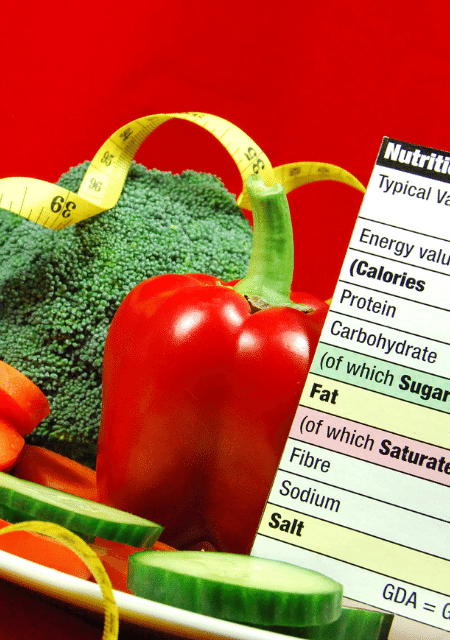RESOURCE HUB:
Alcohol and Menopause

Overview
When women experience the menopause it can be a challenging and stressful time in their lives and you may think that alcohol could be a good way to help deal with that but the reality is that your alcohol consumption can make the symptoms worse.
On this page you will find information about the menopause and its symptoms and how alcohol affects women experiencing the menopause.
Menopause
As the female body ages, it gradually produces smaller amounts of reproductive hormones such as estrogen. Menopause is the time in a woman’s life when her period stops completely due to lower hormone levels. This usually happens naturally between the ages of 45 and 55 but it can happen earlier for some women.
It can also happen because of reasons such as surgery to remove the ovaries (oophorectomy) or the uterus (hysterectomy), cancer treatments like chemotherapy, or a genetic reason.
Perimenopause is when you have symptoms before your periods have stopped. This is a natural period of transition, which begins several years before menopause. You reach menopause when you have not had a period for 12 months.

Alcohol and Menopause
The UK Chief Medical Officers’ (CMO) advice is that both women and men should not regularly drink more than 14 units a week to keep health risks from alcohol low. If you do choose to drink that amount, it’s best to spread your drinking evenly over three or more days.
Men and women persistently drinking over this amount can lead to health conditions such as heart disease, stroke, liver disease, bowel cancer, and pancreatitis.
Alcohol affects women differently to men in general. If a woman and a man drink the same amount, the woman’s blood alcohol level will usually be higher. Some of the reasons for this are:
- Women tend to be smaller than men. That means, the same amount of alcohol is going into a smaller body.
- Because alcohol is held in body water this means the alcohol can be more concentrated in women as they generally have a higher proportion of body fat than men,
- Women tend to absorb more alcohol into the bloodstream than men, due to women having less of an enzyme that breaks down alcohol in the stomach.

This is what 14 units look like:
6 pints of 4% beer


6 glasses of 13% wine
Alcohol and Menopause Symptoms
Health
It’s clear from research that here is a link between alcohol consumption and cancer, particularly breast cancer. Drinking alcohol also increases your risk of several other types of cancer, including liver, bowel, mouth, oesophageal and laryngeal cancer.

Weight
Weight gain is a common symptom of menopause, with women gaining an average of 1-2kg during the peri-menopausal period. Alcohol is calorific and therefore if you drink a lot of alcohol this increases risk of weight gain. Each small glass of wine has about 150 calories so the calorie count from your drinking can quickly add up over the week. This particularly so if you are drinking at home as its likely you are underestimating the amount of alcohol you are actually pouring in your measures.

Hot Flushes
Hot flushes are when you have sudden feeling of hot or cold in your face, neck, and chest. Again, there is mixed evidence for the relationship between alcohol and hot flushes. However, several studies identified alcohol as a positive predictor of hot flushes in menopausal women.
There is mixed evidence about the link between alcohol and hot flushes but some studies have found that women who drank everyday were more likely to experience hot flushes. Alcohol can dilate your blood vessels, which is why people may say that drinking alcohol makes them feel warmer so it makes sense that it may facilitate hot flushes when they happen.

Mood Swings
There is a risk for high depressive symptoms and disorder during menopause and research suggests a link between alcohol and symptoms of depression, suggesting that excessive alcohol intake during menopause may worsen mood swings.
We all know that alcohol affects your mood and that changes depending on how much you have drank. A hangover the next day also can also worsen the symptoms of anxiety and depression.

Problems Sleeping
Menopause has been associated with an increase in insomnia symptoms, such as trouble falling asleep and staying asleep. You may think that alcohol makes it easier to fall asleep, but the quality of your sleep is often disrupted following alcohol consumption.
Repeated excessive alcohol consumption can result in multiple and ongoing sleep disruptions so it is important to maintain healthy drinking patterns to avoid the exacerbation of menopausal insomnia.

How Alcohol affects your Nutrition

You probably know already that alcohol is full of empty calories so can affect your weight but you may not make the link between your alcohol consumption and other physical and emotional symptoms of menopause.
A nutritious healthy diet is important to countering effects of menopause, like premature aging, poor skin condition and emotional wellbeing, but when you drink alcohol it may be getting in the way of all your efforts. How your body metabolizes alcohol and how it affects your digestive system can hamper the nutrients you are taking.
The body does not require alcohol. Instead, it is treated like a toxin that needs to be removed before it can cause damage to cells. When you drink alcohol, your body gives it priority, meaning that other digestive processes are stopped while the alcohol is dealt with.
Alcohol also affects the normal digestion of nutrients by causing damage to cells in the digestive tract and by interfering with the secretion of enzymes needed for digestion. It can also interfere with your liver’s ability to store important vitamins. It has also been shown that drinking too much can prevent the body from absorbing enough protein.
Because alcohol causes damage to the organs involved in digesting, absorbing and processing nutrients, it can lead to nutrient deficiencies in those who drink at high-risk levels. The key nutrients affected include a range of the B Vitamins, which are essential to mental and emotional well being as well as others including Vitamin A, Vitamin C, magnesium, calcium, potassium, zinc and folic acid.
10 Facts and Myths about Menopause
1. Menopause automatically starts at age 50.
On average, menopause begins around age 52, but you could begin experiencing symptoms as early as your late 30s to as late as your early 60s. Every woman is different and while there’s no way to predict when you’ll go through it, a good indicator is the age at which your mother started menopause.
2. Women in menopause can still get pregnant.
You are not considered in menopause until you have had 12 straight months without a period. So, if you have a period after not having one for 11 months and 29 days, you are still in perimenopause and there remains a chance that you could still get pregnant. After a year has passed with no period, a woman can no longer get pregnant.
3. There’s no relief for hot flushes.
The frequency and intensity of hot flushes varies from woman to woman. This is the most common symptom of menopause, and can linger from six months to two years, thankfully there are solutions that offer relief, please seek medical advice from your GP for the best one to suit you.
4. Menopause will lead to weight gain.
While fluctuating hormones during menopause may be the culprit here, menopause is not necessarily the culprit to the increased weight gain. The truth – after a certain age, controlling your weight can prove more challenging. However, if you maintain a healthy diet and exercise regularly, you may find you actually lose weight during menopause.
5. Women in menopause have to pee all the time.
Bladder control and the urge to pee more is an issue for some menopausal women. However, Kegel exercises, vaginal estrogen treatments, and medications can provide relief for this problem. Please seek advice on medication from your GP.
6. Sex drive will disappear after menopause.
Not necessarily, some women report an increase in libido during menopause, attributing it to a greater sense of freedom and relief from fears of unplanned pregnancy. Low libido during menopause may be a sign of hormone imbalance, which can be addressed by your GP.
7. If I have surgical menopause, I won’t have any menopause symptoms.
Surgical menopause occurs after of a total hysterectomy (removal of uterus, cervix, ovaries, and fallopian tubes) or partial hysterectomy (removal of the uterus only). Whilst natural menopause sets in gradually, surgical menopause can commence quickly due to a drastic shift in your hormonal balance.
8. Menopause brings on depression.
experience mood swings or foggy brain due to hormonal imbalances during menopause, which can be addressed with a variety of treatments, please seek advice from your GP.
9. Being in menopause means I’m old.
No you are not! Menopause simply indicates a time of change in your life and new possibilities for your future. Changes in lifestyle, parenting, sexual liberty, and even freedom from menstruation are things to be celebrated!
10. Estrogen Replacement Therapy and Hormone Therapy are dangerous.
Not everyone is a perfect candidate for ERT or HT, many women report significant relief from menopausal symptoms after undergoing hormone treatments. It’s important to remember that no medication or medical treatment is without risks, so it’s critical to discuss all treatment options with a medical professional.

